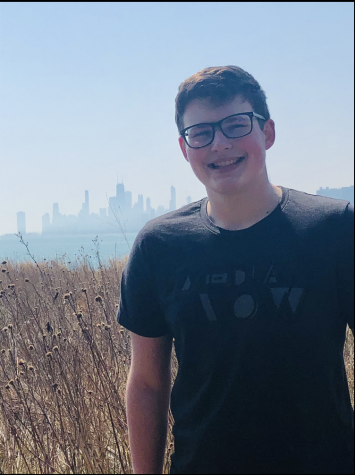Why normalcy is unattainable in a “post-COVID” world
September 24, 2020
Ever since the COVID-19 pandemic began to plague our world, everyone has wanted things to return to normal. Many thought the pandemic was something that would occur for a few weeks, and then would be over with. That has not been the case. COVID has taken the lives of millions—including more than 200,000 lives in this country alone. It has destroyed our global economy and shifted many aspects of society. Due to that, people crave the lives they once lived. However, as nice as normalcy may seem, in a post-COVID-19 world, normalcy is unattainable. The pandemic has had too big of an impact on our world for everything to revert back to the way it was before. Even as things begin to reopen, the impact of the COVID-19 pandemic will be permanent.
“I wish that we would go back to normal, but I know that many changes have to be made in order to keep everyone safe. Post-COVID, I believe that things will not go back to the way they were, especially since many individuals have encountered many emotional and financial problems, which will alter the way our community works,” says junior Joanna Tafolla.
People are scared of the virus, as they should be. That fear will not go away just because time progresses or a vaccine is invented. This virus has changed the lives of countless people. Over the course of a few weeks, COVID-19 turned from being other countries’ problems to being our problems. It upended our lives. It shut down our schools, restaurants and businesses. That drastic shift resulted in a significant amount of fear. And that fear does not go away. When people are deadly afraid of something, just because time goes on or there is something to stop it, the fear is still there. There can be solutions to problems and still be fear resonating within someone. That will be the case with this virus. Too much has happened, too many lives were lost, for that fear to simply disappear.
“I think there will always be people who are afraid of COVID. Even if there is a vaccine or something that helps prevent people from getting COVID, people will still be afraid because of the many traumas they may have encountered during the outbreak of the pandemic, such as losing a loved one or having to suffer from getting COVID,” says Tafolla.
That fear will be exemplified through precautionary measures. People will still be cleaning off countertops aggressively. People will still be cautious in large groups of people. People may still even wear masks. That fear ingrained in society will not go away and that will result in precautionary measures to still be taken.
“I have a friend living in Guangzhou, which had no current cases when I last spoke to her, but people are still taking precautions. I think these precautions will become a part of daily life,” says junior Maia Roothaan.
These precautionary measures can be useful. That fear from COVID could result in less viral outbreaks. By having people still be cautious, there can be a decrease in extreme health problems due to the extra concern being taken. That would result in an overall improvement within our society and definitely would not reflect the world pre-COVID.
Even as people still hold on to the fear of COVID once it’s gone, the history that this pandemic has created will always be a reminder. It turned our society upside down, causing it to have to change dramatically very quickly. It upturned our global economy. It shut down countless industries. That history is a reminder of what happened, and that history could be a deterrent to the normalcy we all crave to have post-COVID-19. History shapes our world as we know it, and we cannot forget the past as we look towards the future. The COVID-19 history will always be remembered and a part of our societal history, making the “normal” world we had lost permanently.
“COVID history will negatively affect our world’s return to normal because there are a lot of setbacks and circumstances that have impacted nations, making it harder for them to know what their next step is,” says Tafolla.
COVID-19 will forever leave its footprint on our world. It will not be forgotten in the eyes of history nor in the eyes of those who lived through it. It changed our world forever. The virus rampaged across the globe, leaving a path of death and destruction in its wake. That death and damage to our world is a reminder. The fear that people will have of the virus is a reminder. The survivors are a reminder. These reminders to the time when a virus drastically shifted our world is what will be the true deterrent to normalcy. Our world can never be what it was before the pandemic. Too much has occurred in its path. People will be afraid and cautious. That will be difficult to stop. However, the one thing we can do is recognize the harm this virus has caused. That recognition will allow people to move on. Maybe then, people’s thirst for normalcy will be quenched. And that is not saying to forget, but simply to move forward. There will always be challenges that come up throughout our lives. This pandemic was one of them. Yet, we cannot ever truly go back to the world that we lived in before the challenges arose. That is the same with COVID-19. No matter what happens, life will never revert back to the way it was. And that is because normalcy in a post-COVID-19 world is truly unattainable.






















